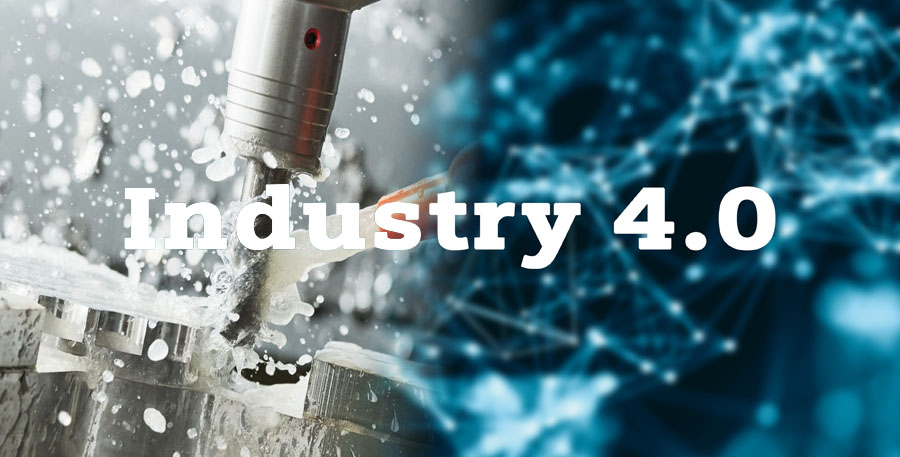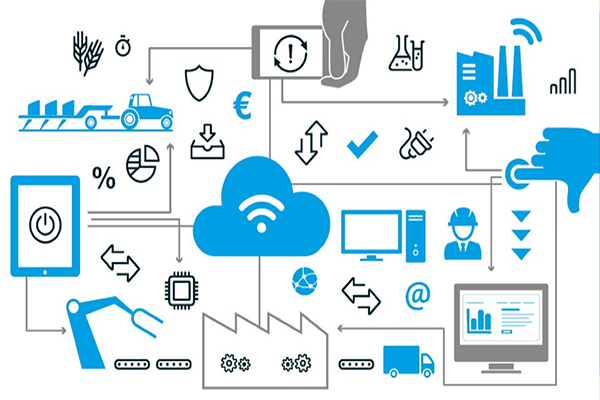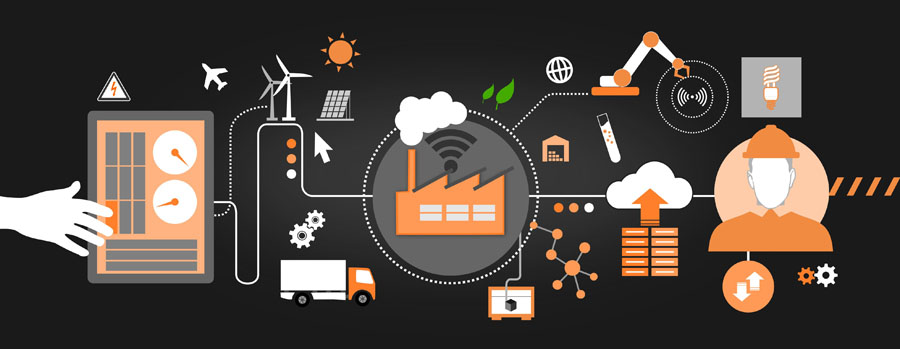The fourth industrial revolution has actually begun and is called Industry 4.0. Like the major early industrial revolutions, Industry 4.0 promises to reorganize production methods and the types of employee positions needed to support changes. The Industrial Revolution (3.0) used technology to achieve higher productivity. 4.0 is about using technology and efficient processes on smarter platforms. Things such as the Internet of Things, artificial intelligence, machine learning, and big data are all being used to expand and enhance the manufacturing sector. The gradual CNC machining workshop must be prepared to implement the transition in order to compete in the current and future markets.
The Internet of Things is leading the tenacious development of Industry 4.0, so it is not surprising that CNC (computer numerical control) machining occupies a dominant position in the turning, milling and grinding of metal products. Like all manufacturing industries, machining is also moving towards more simplified, more connected, and smarter machines, equipment and system networks. The connected process will completely replace the traditional machine, or the connected device will be synchronized with the old system to ensure an accessible large amount of data flow.
Industry 4.0 (also known as smart industry) is a hot topic in manufacturing. What does this mean for specific manufacturing areas, especially CNC machining? How will Industry 4.0 affect CNC machine and related manufacturing technologies?

What is Industry 4.0?
Industry 4.0 or smart industry is an industry that focuses on automation. The defining characteristic is the (partial) replacement of human thought processes with automated systems. People call it the digital revolution for good reason. Due to the rise of the Internet and the rapid development of the so-called Internet of Things today, the connection between people and technology is getting closer. The core of this process is the wireless sharing and collection of data.
Industry 4.0 is the fourth industrial revolution. This revolution uses data and cloud computing in production and manufacturing. The Internet of Things, especially the Industrial Internet of Things (IIoT), as well as artificial intelligence and computer integration, are the core components of Industry 4.0.
The development of these new technologies automates many manufacturing processes, thereby creating “smart” facilities. Each system can communicate with each other and share data, thereby reducing turnaround time and saving costs.
How Industry 4.0 Affect CNC Machining
Industry 4.0 is changing the daily operation of CNC machining factories. With all available smart technologies and integrated software, faster turnaround times and reduced downtime can increase productivity.
According to the latest report of Grand View Research, Inc., by 2025, the global CNC machine tool market is expected to reach US$100.9 billion, growing at a compound annual growth rate of 6.8% during the forecast period. The reason for the growth is the increasing need to reduce operating costs, improve efficiency, and significantly reduce the possibility of component errors.

With the continuous development of technology, metal processing facilities around the world are using more advanced lathes, milling machines, grinders, welding and laser machines. The integration of CNC machinery and CAM (Computer Aided Manufacturing) helps to shorten manufacturing time and ensure the production of defect-free components. Leading commercial enterprises and large manufacturers require more and more advanced CNC hardware and software. It is estimated that by 2025, industrial CNC machines alone will dominate the market, and their value will reach 25.17 billion US dollars.
Machining Benefits From Industry 4.0
1. Persistent Operation
Traditional manufacturing techniques and machine tools are not always reliable. Downtime increases costs, including production, labor, and maintenance costs. Industry 4.0 introduces brand new opportunities in the form of preventive maintenance. With powerful performance and real-time data streaming, maintenance personnel can better prepare for equipment failures or errors. Budding problems can be detected and resolved early before routine operations stop.
Big data solutions even make it possible to build predictive models and algorithms that can be used to identify potential failure points, otherwise many failure points will be invisible to the naked eye. All of this results in continuous operation of machines and equipment without failures and higher efficiency than ever before.
2. Energy And Operational Savings
It is no secret that machine tools and hardware consume a lot of power. They are energy hogs, even when they’re powered down and just in standby. With Industry 4.0 solutions, you can better manage resource usage.
Incoming data collected by IoT sensors and platforms can be used to better inform operations. Smart meters can be placed to effectively manage energy flow. The equipment can be automated or appropriately powered to reduce the impact on the environment and resources.
3. Real-time QA
Quality assurance is an important job in the manufacturing field, and has more to do with the machines and equipment in use, which is beyond people’s imagination. When the equipment fails, the efficiency drops or is completely inaccurate, the result will be the loss of the product.
Therefore, manufacturers always have a quality assurance process to check products or components for defects or minor errors. However, the problem with many of these processes is that they cause production delays.
Industry 4.0 and related technologies will revolutionize this process through real-time QA such as automated virtual metering (AVM) systems. Essentially, data about conditions, quality, and status are collected and combined with information about machines and processes. It provides a more complete overview of operations and provides real-time elements for quality inspection.
4.Better human-machine interfaces
Improving the current version of machines and manufacturing equipment is not just about performance and normal operation. The same applies to the communication standards of the man-machine interface. Most workers will perform daily operations with robots and machines (often called collaborative robots).
The future mechanical workshop or factory workshop will be very efficient, because people, machines and robots can work side by side in a stable and safe environment. In order to achieve this goal, a lot of improvements to the man-machine interface are needed. Technicians will be able to remotely operate the equipment and send commands instantly. The reporting system will provide real-time alerts and insights to operators, no matter where they are.
Embrace Industry 4.0 In your CNC Machine factory
Industry 4.0 technology is destroying the manufacturing space. IIoT brings connectivity and data collection to the forefront, thereby increasing productivity and improving overall customer satisfaction. To make your CNC machine shop quickly adapt and implement these changes will require training, time and patience.
Training existing employees on these new systems and tools will help them transition easily. These new computer-based systems require monitoring and manual operation. Therefore, when accepting this new digital transformation, education and training of employees must be given priority. Put all employees on the same page and conduct adequate training to properly use these new technologies.
Conclusion
Industry 4.0 is the latest wave of changes in manufacturing and commerce as a whole. The integration of new technologies and the embrace of data can create more efficient processes for manufacturers and CNC machining factories.
Industry 4.0 does not worry about this change because of the obsolescence of workers, but brings new efficiency and improvement opportunities to existing processes. These new machines still need staff to monitor and operate the system-in fact, you may need to hire an IT team to resolve any software issues that arise. Industry 4.0 is an ongoing industrial revolution. It is a revolution that CNC machining workshops can use to achieve and exceed their goals.
In the age of Industry 4.0, your machine will be able to communicate seamlessly with automation solutions and will continuously report its status. This applies to both the short-term (“What am I producing now?”) and the long-term (“Which parts are showing signs of wear?”). In short, the result is a highly streamlined, predictable and therefore more profitable manufacturing process.


